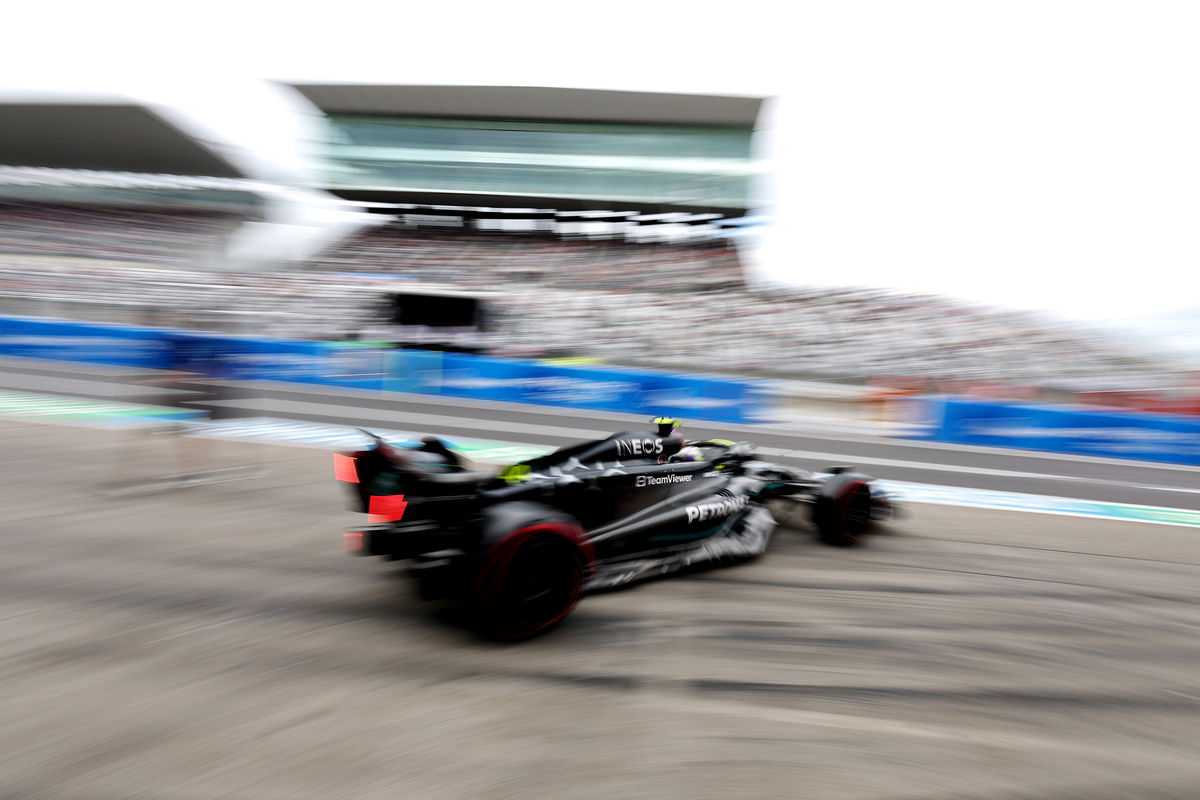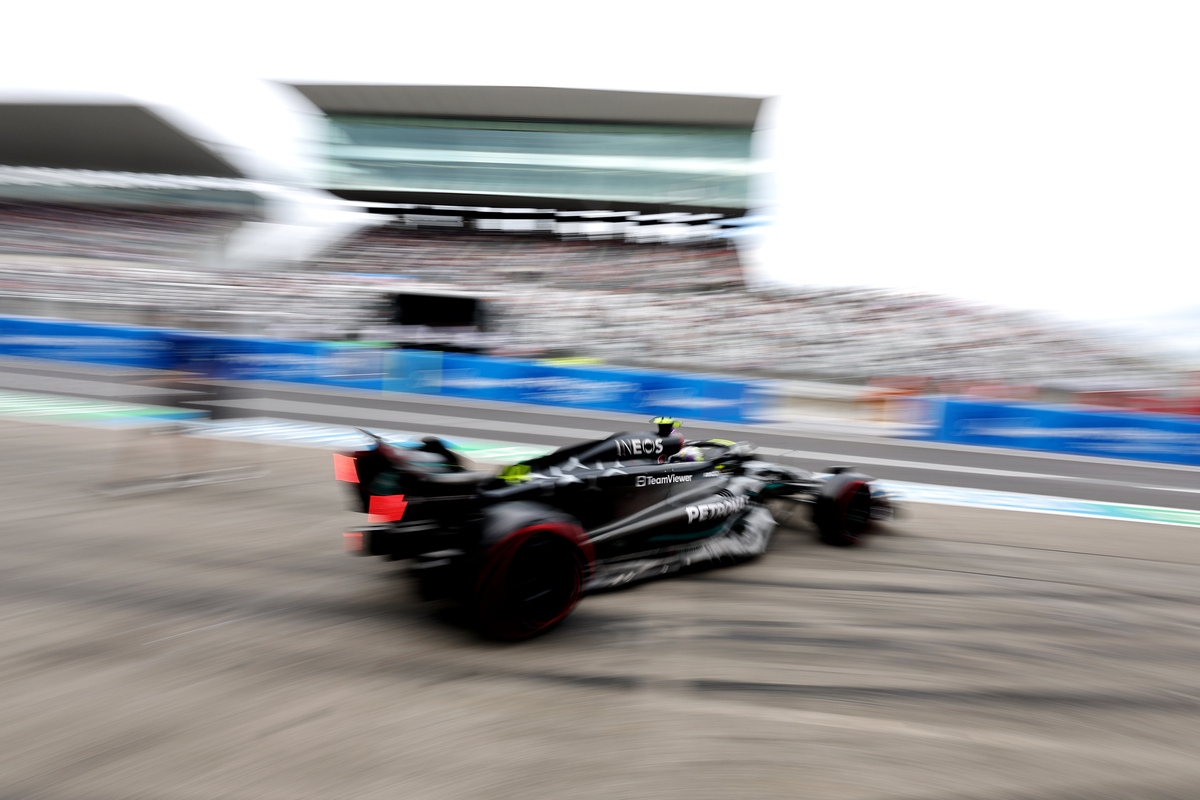

Next year’s Mercedes F1 challenger will be “quite considerably” different as it looks to once again challenge for the world championship in 2024.
Mercedes proved only the third-best team on the grid last year and is this season locked in battle with Ferrari for second-best behind the all-conquering Red Bull team.
The W14 this season has undergone a conceptual change which has netted improved performances.
And while that’s helped inform the development process, there remain weaknesses in the current car.
“We are changing the car quite considerably for next year,” confirmed Andrew Shovlin, Mercedes’ director of trackside engineering.
“Whether or not we can solve all the issues that we’ve got on the handling? Well, that’ll depend on a number of projects delivering.
“Those projects are underway, they’re not complete, but we’ve got some good directions to try and improve that.”
A key to Red Bull’s success is that it has a car that isn’t necessarily exceptional in any particular area but is a good all-around performer.
It produces good levels of downforce, looks after its tyres, and operates well across the gamut of corner types and speed ranges.
The only blip on its radar thus far has been the Singapore Grand Prix.
Clearly the class of the field, several teams have converged towards the RB19 in concept.
Others are looking to make those steps next season – or in the case of Haas take half a step there in time for the United States Grand Prix.
However, the challenge for Mercedes is translating its development into race-winning, and championship-challenging pace in 2024.
“The car will be different, we’ve made a lot of changes to it, but it’s very early in the development of a new car to be able to say, we’ve got it sorted,” Shovlin said.
“When we launched our best cars, 2015, 2019, and those years, we didn’t know that they were going to be great cars when we develop them, you’re just working as hard as you can try to find as much performance as you can.
“On a lot of those cars, we missed targets by quite a chunk in terms of performance but what we do know is if you don’t set very ambitious targets, you’re probably not setting them high enough.
“But you learn a lot in the first couple of days of the Bahrain test.”




















Discussion about this post